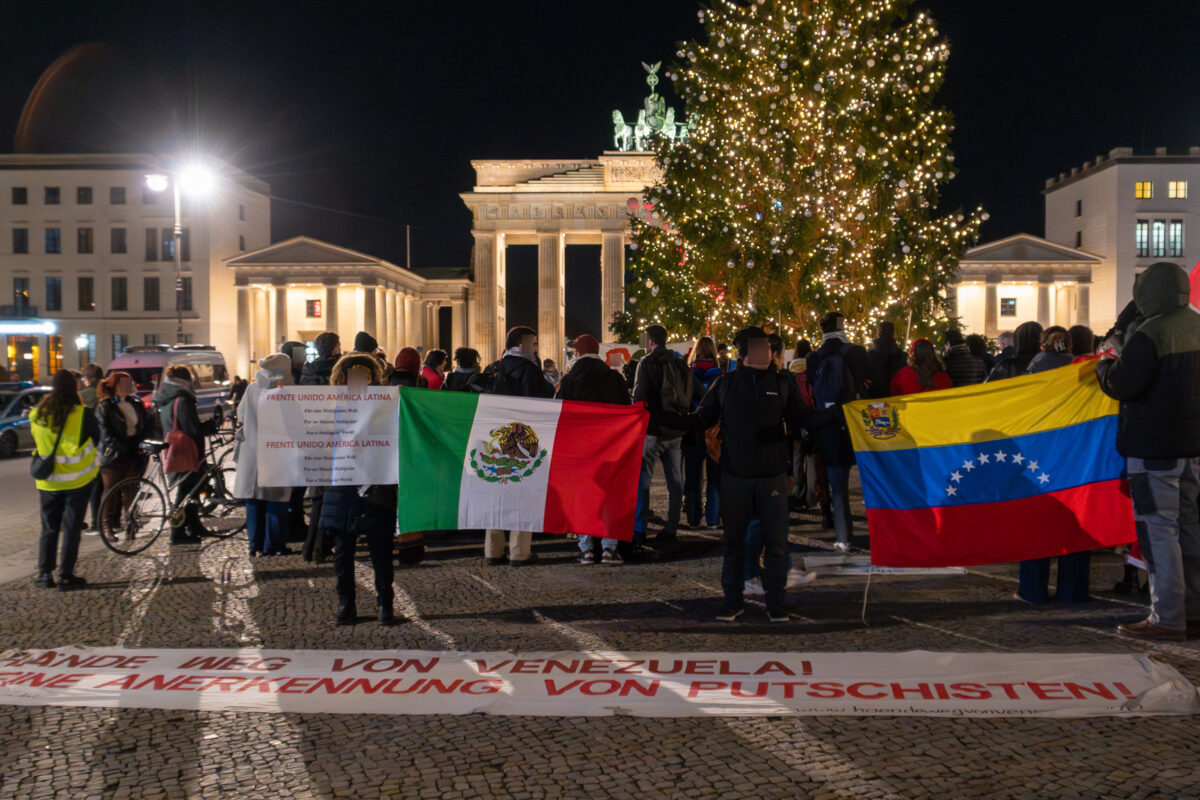The British Labour Party’s recent lurch to adopt far-right migration policies should come as no surprise to anyone with even a passing familiarity with contemporary Western politics. Some of Keir Starmer’s proposed changes include the gradual abolition of family visas, the hobbling of the post-study work period, and a doubling of the period it would take to qualify for permanent residence. Exceptions to this appear to apply to migrants working in nursing, or — in very characteristic British haplessness — artificial intelligence. These policies are mirrored across the pond, with Trump’s attempts to clamp down on birthright citizenship and the issuance of green cards. The waiting period for the latter already approaches multiple decades for citizens of India, China, and Mexico. In Germany, while it appears that the coalition will not make any hasty changes to most citizenship laws for now, the pressure from the right remains strong.
The Western world today enjoys a particularly high standard of living. There are many reasons for this, a central one being centuries of unhindered capitalist development. Colonialism served to offset the numerous crises that capitalism was prone to. The slave trade and the colonisation of the Americas helped kickstart primitive accumulation; the birth of massive settler-colonies helped offload Europe’s surplus populations; and finally, colonies in the global South acted as both a source of raw materials, and a destination for capitalism’s finished goods. This formal colonial period is now history, but one of its core mechanisms — the drain of value from the global South to the global North — has far from disappeared; it has simply mutated. Dependency and drain are maintained through the presence of the U.S. military, and through endless political interference; through the concentration of financial capital in the North; and through technological dominance, as technical know-how and legally enforced intellectual property barriers ensure that Northern firms occupy a comfortably extractive position in global supply chains.
The maintenance of this system requires a diverse and flexible labour force, which the global North notably lacks. It requires “skilled” workers, ideally trained at someone else’s expense: scientists and researchers, web developers and computer programmers, engineers and designers, each playing a part in helping Northern firms redirect value from labour-intensive production in Bangladesh and China and Vietnam towards themselves. It also requires myriad forms of social reproductive labour to ensure that society keeps running — nurses, doctors, and bus drivers, to name a few. And finally, to plug the gaps in the market where profitable commodity production is simply impossible, it requires a continuous stream of unfree labour — visible in American prisons, Spanish and Italian farms, Romanian construction sites, Greek refugee camps, and so on.
On the face of it, today, the main outcome of capitalist crisis in the Western world, with its long legacy of racialisation, has been the birth of an ultra-nativist far-right. Their specific brand of politics, at its most extreme, aims to kick anyone who isn’t white out of Western civilisation’s claimed territories. Five minutes on Twitter/X is enough to witness multiple apoplectic Nazis screaming deport at black rappers taking a principled stance against genocide, or at South Asian politicians eating rice with their hands.
What requires critical examination, however, is whether or not this is the only possible current that capitalist crisis can conceive in a racialised society; and the world outside Europe and the United States is rife with counterexamples. In South Africa or Brazil, for instance, racialised labour forms a buffer against general economic malaise. India’s stunning absence of social mobility speaks to its unique synthesis of caste and capitalism, entrenching existing hierarchies to serve dominant caste groups. These countries might struggle to produce computers or washing machines today; yet, they are able to counter this malaise by ensuring that their dominant social groups have access to a cheap and steady supply of nannies and cooks and cleaners, of chauffeurs and delivery workers and security guards.
The most successful example of this labour pattern does not, however, lie in these middle-income countries that ultimately still struggle to keep the system running. It lies in a very specific set of oil-rich, high-income countries on the Arabian Peninsula: the UAE, Qatar, Saudi Arabia, Bahrain, Kuwait, and Oman.
Racialised labour in the Gulf is uniquely disposable, since it is made up entirely of migrants. Migrants make up the bulk of society in most of these countries: only 12% of the population of the UAE, for instance, is “native” Emiratis. While many of these countries are framed as paradise for Western, white-collar migrants, a precarious working-class forms a large chunk of this migrant population. For the overwhelming majority of these migrants, any form of permanent residence (let alone citizenship) is not an option that exists — no matter how many decades they have spent there. This precarity enables an almost uniquely brutal exploitation: and the slightest injury or incapacity to work can result in instant deportation, as can shifts in the broader economy that make workers redundant. This ability to deport at will has also effectively made labour movements in these countries non-existent: you are simply not going to strike for better conditions if doing so gets you put on the next flight back home (in the best case). The end result is a careless brutalisation of workers, perhaps the most striking example of which is the six thousand workers who died building a FIFA stadium in the sweltering Qatari sun.
What makes this pattern of disposable racialised labour particularly pernicious is that it has immense global legitimacy, since it occurs almost entirely along the lines of citizenship. Marx’s oft-quoted passage on the opiate of the masses possibly applies far more to nationality today than it does to religion, with near-complete buy-in in most countries, rich or poor. The inalienable right of nation-states to discriminate between citizens and non-citizens also has near-complete buy-in; it is seen as a common-sense, “logical” function of a nation-state. The outcome is that no matter how much one might look askance at Dubai’s labour conditions, to argue that Dubai must grant Philippine nurses citizenship within ten years would be seen as going a shade too far for most people. The UAE is a sovereign country, after all, and the principles of non-interference in sovereign, domestic decisions have been around since the Peace of Westphalia. It would clearly be absurd for a Swede or a Brazilian or (god forbid) a Filipino to suggest that the UAE do things differently.
Going back to crisis — there is a fair bit of evidence that the Western world appears to be slowly edging towards implementing the Gulf model domestically. Sporadic approximations of this model already exist in Europe: Denmark, for instance, is the prototypical example of an anti-migrant social democracy. Danish naturalisation laws require nine years of uninterrupted residence in order to naturalise as a Danish citizen. Receiving unemployment benefits resets the timer, even though paying into the system is mandatory. Minor traffic violations place you in a four and a half year quarantine. In practice, these laws are constructed in ways that ensure that the only people who even stand a chance are the “high-skilled” workers contributing to Denmark’s rentier state. The Danish welfare state, after all, relies on taxing the profits made by high-tech pharmaceutical firms like Novo Nordisk, which subsist on rents attracted by their intellectual property assets; or Maersk, the logistic titan that was happy to make a quick buck off arming Israel’s genocide in Gaza until just last week. The much warmer Italy, with its fabled fresh Mediterranean produce, is a slightly different (yet broadly similar) example. Italian agriculture relies heavily on unfree labour, maintained precisely through the precarity created by migration law. Labour conditions have spawned horror stories, such as the recent incident of an Indian farmhand who, after suffering a workplace accident, was abandoned, and left to bleed to death. Less than a year later, an Italian referendum on easing citizenship requirements from ten years to five saw a turnout of only 30% — with only two-thirds of those voting in favour. The referendum did not get past quorum.
One can see why (variants of) this model are exceptionally well-suited to the West’s political economy today, particularly in Europe. As in the Gulf, making citizenship unattainable solves both issues with the labour question. The reserve army of labour, trying to join the ranks of the toiling masses, is sizable enough that many will accept these conditions. As for the labour aristocracy — necessary to ensure Western “competitiveness” over the rest of the world, particularly China — there’s always cold, hard cash. Further, there is no reason to believe that this approach wouldn’t quell far-right sentiment. It is entirely correct that the Danish Social Democrats have succeeded at quelling the far-right, despite rising migrant numbers. Many have pointed out that they have done so by adopting far-right policies; but “send them packing” and “make them sweat” are not the same policy, as abhorrent as both of them may be. AfD-style mobs may well fade into the background and dissipate when it is made clear that there will be no conceivable path for migrants to claim welfare, or to become citizens. It is far from unlikely, therefore, that this — rather than an explicitly expulsionist racism — is the direction in which Western capital’s decrepit flagship will veer, helmed by an increasingly hegemonic informal centre-/far-right alliance. The fruits of rearmament, ostensibly to deal with a belligerent Russia, can easily be repurposed once it becomes clear that Russia is a spent force, and levelled against migrants at European borders instead. Climate change denial, too, will fade into the background in this earthly paradise, only to be replaced with the far more dangerous ecofascism.
Yet, there a few (potentially insurmountable) barriers remain. For one, most of Europe cannot sustain the kind of wages that a minuscule, rentierist country like Denmark can. There are also far more Europeans than Gulf Arabs, making a Dubai-style Garden of Earthly Delights a bit of an ambitious goal. And finally, fashioning a country that is welcoming to “skilled” workers while being brutally austere to “unskilled” ones is a particularly delicate balancing act — you need to be racist, but not too racist, and you need to pay better than your competitors. It is far from clear that Europe is capable of playing this game nearly as effectively as the United States or the Gulf countries are. This will sharpen the effects of the polycrisis in Europe. And in all honesty, at least as far as left politics is concerned: this is far better than the stable, ultra-racist gluttony of the Gulf.
Quite apart from our moral responsibility towards the most vulnerable working-class migrants struggling to make a living, it is critical to remember that residence rights go hand-in-hand with labour movements. The infinite exploitation of foreign workers is enabled not by their mere presence, but by their legal precarity: workers cannot go on strike if doing so is likely to be met with instant deportation. The need of the hour for the European left is to genuinely, honestly engage with the trajectory that the combination of border controls and capitalist growth has placed Europe on. At this point, the victory of the deport model is bound to lead to militarised fascism, which is bound to eventually turn inwards. And while the victory of the Gulf model might appear to buy us a few years, it also spells the death of labour organising; failure; discontent; and eventually — militarised fascism.




